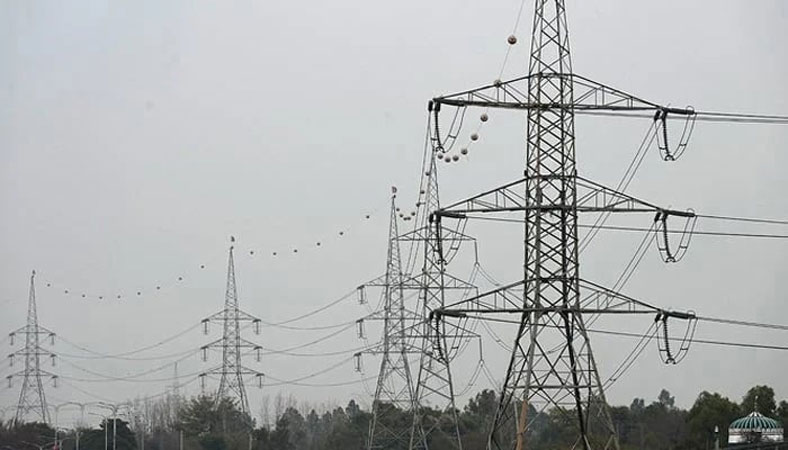Are we heading towards right direction in the current IPPs saga?


According to experts, the operational losses of GENCOs were chronic and continued which was highlighted by NEPRA from time to time highlighted in its State of Industry Reports (SIR). These losses were funded through substantial raise in the tariffs passing on the inefficiencies of the GOP to the consumers.
Documents reveal that in SIR 2014, NEPRA stated that the efficiencies of different units of GENCOs have declined up to 16%. They are currently charging as high as PKR 54.62/kWh for energy purchase price. The availability factors of some of blocks are reported as to be low as 30%. It is also pertinent to note that these GENCOs are also charging heavy ROE in their tariffs the reason for which is hard to comprehend as GOP is meant to facilitate public not to make profit. This bleeding must be stopped immediately.
As per the NEPRA’s SIR 2023 the Transmission and Distribution (T&D) and Recovery losses incurred by DISCOs and NTDC aggregated to 27% of the total generation. GoP can save approximately PKR 150 bln annually by eliminating the recovery losses and reducing the Transmission & Distribution losses to 10%, this will reduce the consumer tariff by PKR 1.38 per KWH. Bangladesh has made significant improvements and has successfully reduced its losses to 10% from 36% in 1991 when Pakistan’s T&D losses stood at 20%. Similarly post-privatization, KE has reduced its T&D losses from 36% in 2009 to 15.27% in 2023.
Data reveals that the GOP also set up power plants in IPP mode despite the fact that this mode was meant for private and foreign investment in the sector. Four RLNG power plants and a solar power plant having a capacity of around 5,000 MW was set up in the GOP in IPP mode, this constitutes more than 11% of the installed capacity in the country. Let’s not forget that the Hydel, Nuclear and GENCO are also owned by the GOP and have the highest share in the country’s installed capacity i.e. 54%. Based on the audited financial statement of FY’23 the four of these five IPPs of the GOP (having capacity of 3,733 MW) earned a profit of PKR 65.6 bln and got capacity revenue of PKR 80.7 bln.
The debate of the Capacity Payment is fuming in the media as a grave problem in the power sector. Capacity Payment is a fixed amount paid to power producers to remain available for generation 24/7 under a Take-or-Pay arrangement. Capacity Payment covers capital recovery (including project debt in the first 10 years) and operating expenses, and insurance, without it no lender will finance the project. This is because of the reason that the GOP is the sole buyer of electricity, and in the absence of capacity payment if the GOP, don’t buy electricity the company will become bankrupt without any doubt. This model is followed internationally for power & infrastructure projects. LNG terminals in Pakistan are also based on the same model. During FY’23, IPPs charged PKR 2,100 bln in capacity invoices, GOP have the biggest share of 40% followed by CPEC IPPs 31%, locally owned CPEC and coal IPPs getting 11% and 2002 & 1994 Power Policy IPPS together having a meagre 6% share in the total capacity charges.
Experts say that in the current dilemma GOP is once again trying to renegotiate the contracts again within the short span of three years the local investor mainly set up under the 2002 and 1994 Power Policies. The plants set up under these power policies have a share of around 16% in the total installed capacity of the country. The terms of their contracts were earlier altered in late 1990s and 2020s but the woes of the power sector still continue as the problem lies somewhere else. These repeated deviation from policies and signed contracts will spread negativity amongst the local and international investors at a time when the country is in dire need of foreign as well as local investment to stabilize the economy.
It is the dire need of the hour that the GOP address the real issue and challenges for the sustainability of the sector by having dialogues and discussion amongst the stakeholders to pin point the real issues and implement their remedies. Some of the key remedial measures should include; crack down on power theft, eliminate the recovery losses, use of advance technology in the metering system, shut down inefficient Genco units, request banks to lower lending rates to IPPs and increase debt servicing period.
Recent Posts
- Technology
Meta adopts X’s algorithm for crowdsourced fact-checking
Meta has announced a test of its new fact-checking system, Community Notes, which will use…
- Lifestyle
Unlock weight loss: The power of drinking okra water
Drinking okra water can support weight loss and boost overall health. Okra, also known as…
- Sports
Free entry for fans: PCB announces eight matches in national T20 cup
The Pakistan Cricket Board (PCB) has announced free entry for eight matches of the National…
- World
Protesters rally for justice: nearly 100 arrested for Palestinian activist Mahmoud Khalil
Nearly 100 people were arrested during a protest at Trump Tower in Manhattan. The demonstration…
- World
Putin condemns Jaffar express attack, offers support to Pakistan
Russian President Vladimir Putin has expressed condolences to Pakistan after the deadly terrorist attack on…
- World
Mahmoud Khalil Sues Columbia University to Protect Activist Records
Mahmoud Khalil, a Columbia University graduate, has filed a lawsuit against the university. He is…
Leave a Comment